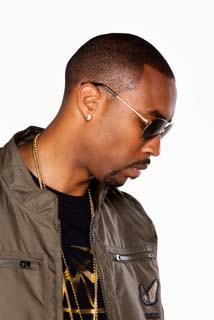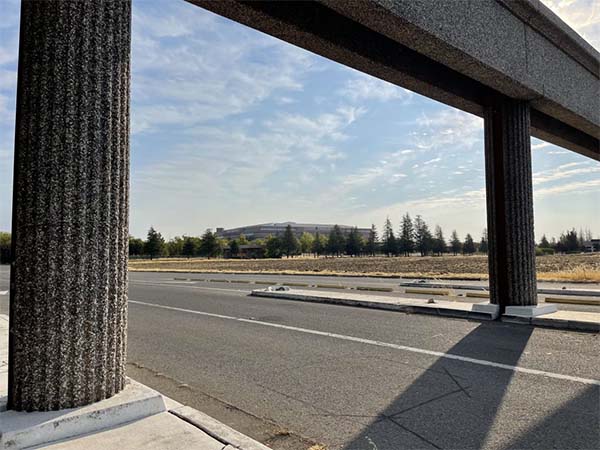
by Michael P. Coleman
“I didn’t renounce my faith. I renounced my marriage.”
Montell Jordan entered the music scene with a bang in 1995 with the R & B and pop smash “This Is How We Do It”. The album of the same title eventually achieved multi-platinum status, and Jordan followed the single up with the Top 40 hit “Somethin’ 4 Da Honeyz”. In the years that followed, he went on to write and produce his own material as well as for other artists, including Deborah Cox (“Nobody’s Supposed To Be Here”), Christina Milian, 98 Degrees, and Sisqó (the Number 1 smash “Incomplete”.) Over the years, Jordan was engaging and open in talking about his career, but remained relatively mum about his private life.
I recently caught an episode of TV One’s excellent “Unsung” featuring Jordan, and I was drawn in by his infectious “This Is How We Do It”. The song always take me back to the 1996 University of Michigan Black Alumni Reunion Weekend. Oh, I dropped it like it was hot that night! I never blamed Jordan for the injuries that followed, and after I was released from the hospital, I remained a fan. But I digress…
I was surprised to learn from the “Unsung” episode that Jordan entered the ministry full time in 2010, now serving at a mega church in Atlanta. I was even more surprised to learn that he has been married – to the same woman – throughout his entire career.
As Jordan prepared to release his second Christian album, Covered, and first book, Make Your Marriage Your Masterpeace, I caught up to him, as I had some follow-up questions that “Unsung” didn’t ask. He elaborated on his and his wife’s decision to hide their marriage at the beginning of his career in an effort to sell more records, the evolution of his faith and his call to the ministry, and his book. Jordan also explained why he thinks Christians shouldn’t limit themselves to only listen to gospel music, and why he thinks he’s “the Will Smith of Christian music.”
I can‘t say I was surprised to learn you were a man of faith, but I was surprised to see you involved in such a multiethnic church, especially with your background and history with a traditional, predominantly African American church. What attracted you to Victory World?
I grew up in a black neighborhood, attending a Baptist church. I went to a public elementary school, a Christian middle school, a Catholic high school, and a Church of Christ college, Pepperdine University, where I was pretty much a minority on campus. From a spiritual standpoint, I saw everything from Baptists to Catholics to everything across the board. So although I started in the Baptist faith, I was able to see lots of different types and colors of people. Once “This Is How We Do It” and my career took off, I started performing for predominantly black audiences, but once the music started crossing over, I found myself in front of all types of different audiences. I went on tour with Boyz II Men, and they had huge pop and urban audiences. I did a world tour, going to Korea, Japan, so I was always in front of very diverse audiences. Later, I realized that some people’s ministry school is the seminary, and mine was the world of R & B – that’s where I travelled around the world and saw different people and experiences, different styles of participation and engagement in music. Through Victory World Church, after many black charismatic church experiences, which focused a lot on emotion, this was one of the places where I was able to not praise God for what he’s done, but worship Him just for who he is, regardless to whether he’s done it or not. At Victory, we put our musical tastes, ethnicities and cultures aside for the God culture, for Jesus culture.
I hadn‘t thought about your pop crossover setting the stage for what you‘re doing now.
That was my training ground. Some people have been in ministry for years, and they know what they know. For me, I’ve known something different. I’ve seen so many different things, that it just seemed natural to me. I joke around – in a world where there are racial tensions, you have a guy like Will Smith who is the unoffensive type of black guy. He’s one of the guys who could babysit the kid of a white soccer mom in suburbia, whereas that same mom might have a concern about a different type of guy watching her kid. I like to feel as though with my upbringing and experience with different cultures that I can be that unoffensive urban presence that can reach all types of different people. I feel like I could be a Christian music version of Will Smith – I can perform for black audiences, white audiences – I can go almost anywhere because of that crossover appeal.
Do you recall the moment when you decided to spend your life serving God?
I do – and it was different from the first time I did it! (Laughs) As a kid, naturally there were moments. I got baptized, and went along with things although, as a kid, I didn’t really understand what those things meant, what being saved meant. I remember one of the first times I really came to Christ was 1993. I was at Church of the Harvest in California. My girlfriend at the time and I had had a nasty breakup that year, and the only place I could meet up with her was at church. That fall, I heard the Lord speaking to me and calling me into the body of Christ. I’d been in church my whole life, but that was the first time I heard Him calling my name, asking me to step out of what had been traditional religion for me, and ask me to focus on Him. From there, I still didn’t fully walk in accepting the call for my life until I entered full time ministry, which happened in 2010.
For decades, popular secular music artists have transitioned to Christian music. Some have had an easier time with it than others. Given your former secular music persona, how easily did you transition to your current music ministry?
I think unlike some of my predecessors, I didn’t transition into music ministry. I went into full time ministry, so my call wasn’t to go into the gospel music ministry. I am a licensed minister who can marry, bury, and dip. Many of my activities are based around baptizing and counseling and christening babies and helping to revive marriages and things like that. I get to do music at Victory, as I lead our congregation in worship. But a lot of what I do is not on that platform. I believe all music belongs to God. He’s the only creator. It’s a matter of whether we’ll glorify Him with the musical gift He’s given us or not. Although I do Christian music now, and write Christian songs now, when we say the word “secular” we try to separate things. I think that Christians just shouldn’t be boxed into making Christian music. I believe music belongs to God. If you’re getting married and you need a wedding song, I don’t know that you need a Christian wedding song. If you have a baby, I don’t know if you need a Christian lullaby. I feel like Christians should be making all types of music – the wedding songs, the songs that make people want to smile, or help them through tough times. I don’t think Christians should have to only listen to “Christian” songs. That would be like a Christian restaurant owner serving only Christians, or a Christian dentist only taking on other Christians as patients. You can be any of those professions and be a Christian and serve all people and lead and draw them to Christ.
At some point you must have decided to do more musically than lead worship service at Victory World Church, as you‘ve recorded Christian albums. How was that received by your former secular music colleagues – and by the Christian music community?
My ministry has been more accepted by “secular” people than by “Christians”. People I knew in the business congratulated me, but with Christians there was that one eyebrow going up. If there was any scrutiny, it was from Christians, not from the world. People want to be sure, they don’t want God’s name to be dragged through the mud. I’m guilty of it, too. Some of my peers will show up on TV and do an interview, talking about Jesus and everything, and two weeks later I’ll see them on TMZ and out in the club, doing crazy stuff. To me, my walk has to line up with what I’m saying, and that’s the journey I’m on right now. I want to make sure the walk lines up with what I’m speaking.
One of the most moving parts of your recent “Unsung” episode was when you and your wife talking about making a decision to go in the closet with your marriage, to line up with what the record industry and your record label was trying to create and promote. Did you feel you had to renounce your faith, as well, to be successful in the secular arena?
I don’t think I ever renounced my faith. I think I renounced my marriage. The focus was on telling people I was single so I could sell more records. At the time, I didn’t look at marriage as a covenant relationship between me and my wife and God. I looked at my marriage as something that God put together, but it was up to me and my wife to decide whether to make our marriage public information or to keep that private. If you talk to people that I worked with back then, they’ll tell you that I never renounced my faith. People knew I was a Christian. We never stopped being faith people in the studio, we prayed before recording and before performances, and all of my band’s members were Christians. Honestly, our walk did not always show that we were Christians. On This Is How We Do It, a multi-platinum selling album, I had cuss words and very explicit topics on it. But my wife and I took that album to church and prayed over it together, prayed for God to bless it and give us an opportunity show our musical gift to the world, and I believe God did that. I don’t believe that the devil “blessed” the album. You and I are only talking today because of This Is How We Do It and the platform that God provided for it. If God’s word is true, and all things work together for the good of them who love the Lord, then that says to me that even an album that had suspect topics on it and damaging types of material on it also had things that God knew he could ultimately use for His glory, years later.
Tell me about the new music, and the upcoming book.
We released an album called Shake Heaven in 2011. It was a CD / DVD project that did very well, being nominated for a Dove Award. It was the first worship offering from Victory World Music. Earlier this month, we released our second album, Covered Live. On it, we’ve covered some of the biggest worship songs at our church, incorporating several multicultural worship songs. Sometime next year, my wife and I will be publishing our book, Making Your Marriage A MasterPEACE.
Covered Live is available at iTunes and Amazon.
Michael P. Coleman is a freelance writer based in Sacramento, California. He’ll show you how he does it at michaelpcoleman.com or on Twitter: @ColemanMichaelP.





